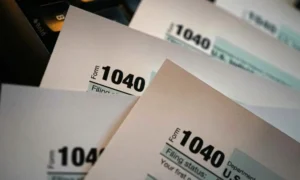New Jersey Tax weighs in as one of the worst states in the country. According to the Tax Foundation, a reputable Washington D.C. think-tank, NJ ranked last for tax climate.
It should come as no surprise that its citizens are fleeing the state. In 2018, more people moved out of NJ than moved in. The state’s population dropped to 2013 levels.
New Jersey’s residents, including business owners, are facing a heavy tax burden. The Garden State is amongst the worst for business income, property, and sales tax. NJ’s sales tax is the 5th highest in the nation.
Read on to learn how NJ business owners are coping with taxing situations. Explore all of the nuances related to collecting and reporting sales tax in the Garden State.
What Is the New Jersey Tax Rate?
The state’s sales tax rate currently sits at 6.625% Effective January 1st, 2018, the sales tax declined from its peak of 7%.
There are impoverished areas in the state that have a lower sales tax. Referred to as Urban Enterprise Zones (UEZs), the sales tax is cut to 3.3125%. There are 32 UEZs in New Jersey belonging to 37 different cities.
What Items Are Subjected to Sales Tax?
For the most part, items that you purchase at a store or restaurant are subject to the sales tax. In addition, a service purchased from a contractor is also taxable.
A meal prepared at your favorite restaurant is taxable. Major items like furniture and cars are taxed as well.
The state does have a list of items that are exempt from the sales tax. A real estate transaction is perhaps the most impactful item exempted from sales tax.
Other notable items are clothing and unprepared foods for human consumption. Business owners must have an exemption certification on display for these items
What Services Are Subjected to Sales Tax?
Many services offered in NJ are not subjected to sales tax. This is great news for consumers that routinely get their hair or nails done.
However, there are some services that fall under sales tax rules. One example is the financial services sector, including items like marketing or stock brokerage.
Is Your Company in the Sales Tax Nexus?
This may seem like a complicated term, but it simply means that your business has conducted significant business operations within the state. There are a number of conditions that satisfy this standard.
For example, if your company has an office or storefront it is considered in the sales tax nexus. Another example is your company having employees or independent contractors in the state.
Other conditions relate to the handling of material. Goods in a warehouse or delivery of merchandise within the state meet the standard.
There are some economic conditions to meet as well. The state government considers businesses that generate over $100,000 in sales to have economic nexus. Businesses that make more than 200 sales transactions also meet this criterion.
What to Do If My Company Sells Taxable Goods or Services?
Your business sells taxable items and you are wondering what is next? First, in order to sell taxable goods or services, you need to register for a sales tax permit with the state. New Jersey’s agency for handling registration requests is the Division of Revenue and Enterprise Services.
The next step is putting the Certificate of Authority for Sales Tax on display at your business. Also known as Form CA-1, this document tells customers that your business is authorized to collect sales tax. It also allows the business to use Sales Tax exemption certificates.
How Do You Collect Sales Tax?
Now that you have verified collecting sales tax is required, it is time to execute. First, check to see if your business is operating in a UEZ.
If so, this means that you charge the lower sales tax rate of 3.3125%. For businesses falling outside of a UEZ, the tax rate is 6.625%. Simply apply the sales tax on top of the final price and you are set.
How Often Is Sales Tax Collected?
When you register for a sales tax permit, the Division of Revenue and Enterprise Services will inform you how frequently to file sales tax returns. The frequency depends on the amount of sales tax your business collects.
Monthly filing applies to businesses that collect $500 or more in sales tax per month. Another criteria for this filing frequency is $30,000 in sales tax collections from the prior year.
Any business that collects less than these amounts can file quarterly. Sales tax is collected on the 20th day of the following month unless that day is on a weekend or holiday. In those cases, the filing is due the next business day.
What Happens When an NJ Resident Buys Something Out-of-State?
For out-of-state purchases, a Use Tax is applied. The Use Tax is also applied to purchases made via mail or online. The concept is that products or services are bought out-of-state but intended for use in NJ.
You may think it is cheaper to shop in a state with a lower sales tax. Some states, like Delaware or New Hampshire, do not have a sales tax at all.
However, you still have to pay the NJ Use Tax. The primary reason is that NJ wants to incentivize you to shop within state boundaries and not give business to other states.
The Use Tax rate is equal to the sales tax in the year of purchase. As mentioned above, the current NJ sales tax rate is 6.625% effective in 2018 and beyond.
In 2017, the sales tax rate was 6.875%. For the 10-year period prior to 2017, the sales tax rate was 7%.
A Recap of Taxing Situations in New Jersey
When people hear taxes in New Jersey, there is a natural sense of alarm. However, applying sales tax in the Garden State is not that difficult as long as you follow the appropriate steps.
If you are dealing with taxing situations in NJ, contact us today for professional assistance.





